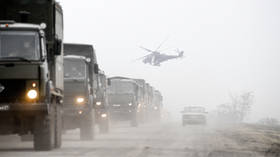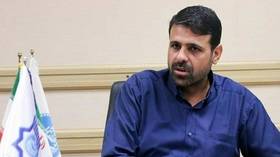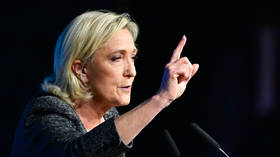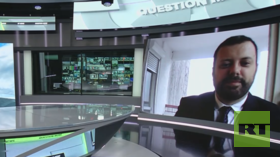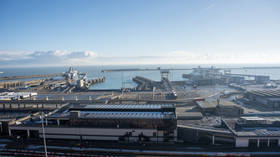Boris Johnson says Russian attack on Kharkov reminiscent of Sarajevo
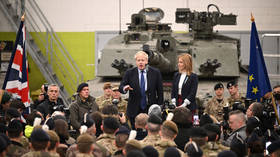
UK Prime Minister Boris Johnson said on Tuesday that the Russian offensive on the eastern Ukrainian city of Kharkov reminds him of the shelling of Sarajevo in the 1990s, which invited NATO airstrikes on Bosnian Serbs. Russia says its military is minimizing civilian losses.
"It reminds me, if anything, if you remember the shelling of Sarajevo market by the Serbs, the shelling of innocent people in Bosnia, it has that feel to me of an atrocity committed deliberately against a civilian center," Johnson told reporters in Estonia.
"I think people's stomachs are being turned by what's happening, and they're seeing it's necessary to stand up against Russian aggression, to support the Ukrainians,” the British PM added.
Russian forces bombarded Kharkov on Tuesday, though Moscow insists only military targets are being hit. A missile strike on the city’s main square that morning has been portrayed in Western media as an attack on civilians and described by Ukrainian President Volodymyr Zelensky as “open terror,” although the square was reportedly empty at the time of the strike.
Johnson’s statement compared this attack with an artillery strike on a marketplace in the Bosnian city of Sarajevo in the 1990s. Several markets were bombed during the siege of Sarajevo, but an attack in 1995 that killed several people was used as pretext for NATO to bomb Bosnian Serb targets, emboldening the Bosnian Muslim forces.
While Johnson’s statement alludes to the possibility of NATO involvement in the conflict, NATO Secretary General Jens Stoltenberg said on Tuesday that the alliance does “not seek conflict with Russia.” Stoltenberg, as well as Johnson, have ruled out enforcing a “no-fly zone” over Ukraine, arguing that this would bring NATO and Russia into war.
However, some pro-intervention voices in the UK think otherwise. Speaking to the BBC on Monday night, General Sir Richard Barrons, the former head of Joint Forces Command, said that “public opinion” could force “NATO military power” to intervene, even if such intervention means “war with Russia.” Barrons cited NATO intervention in the Yugoslav Wars as a potential model, even after admitting that unlike Serbia, Russia is a nuclear power.
